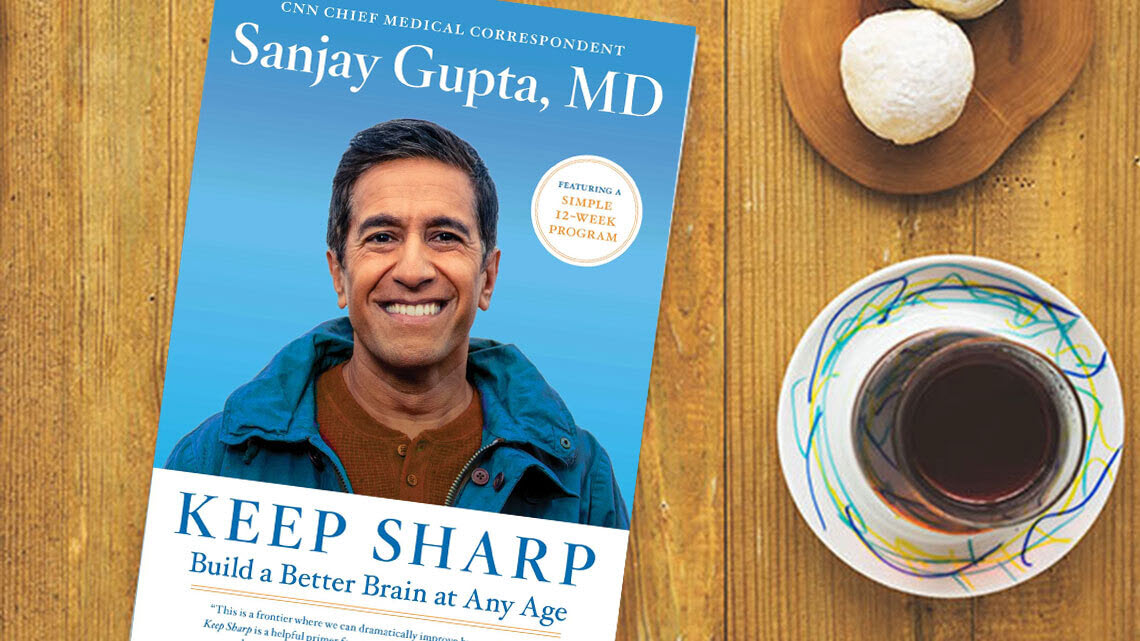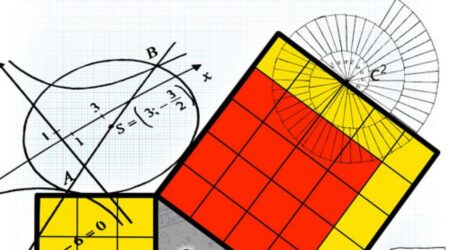By Vishnu Makhijani
His three teen and preteen daughters find it hilarious that their father has written a book about memory; they believe he “literally can’t remember anything”. His wife, after reading the manuscript of the book, reminded him that she was, in fact, his truest love. He wisely conceded this point.
“Our brains sculpt who we are and the world we experience… Neuroscientists have their work cut out for them because the brain continues to mystify as if it were a distant planet light years away,” writes Dr Sanjay Gupta, CNN’s Emmy Award-winning Chief Medical Correspondent, in “Keep Sharp – Build a Better Brain at Any Age” (Simon & Schuster) that also contains a brain training program at whose core is the S.H.A.R.P. protocol.
The brain is “arguably the most enigmatic 3.3 pounds of life. Researchers even found a new kind of neuron recently — the rosehip — and still don’t know what it does. It seems to exist only in human brains but not in rodents, which may explain why so many mice brain studies never translate to humans. Our brains can be extraordinarily selfish and demanding as well. Of the total blood and oxygen that is produced in our bodies, the brain steals 20 percent of it, despite being only roughly 2.5 percent of your body weight. There can be no life without a brain”.
“Time to meet your inner black box,” writes Gupta, who, in 2009, at the beginning of the Barack Obama administration, withdrew himself from consideration as the US Surgeon General for professional and personal reasons.
Along the way, he debunks common myths about ageing and cognitive decline, explores whether there’s a ‘best’ diet or exercise regimen for the brain, and explains whether it’s healthier to play video games that test memory and processing speed, or to engage in more social interaction.
Discover what we can learn from ‘super-brained’ people who are in their 80s and 90s but show no signs of slowing down – and whether there are truly any benefits to drugs, supplements and vitamins. Gupta also addresses brain disease, particularly Alzheimer’s, and answers all your questions about signs and symptoms, and shows you both how to ward against it and how to care for a partner in cognitive decline.
The key to moving ahead, the author writes, is mastering the S.H.A.R.P. protocol: Slash the sugar, Hydrate smartly, Add more omega-3s from natural sources like wild cold-water fish, Reduce portions, Plan meals ahead.
Once you have done so, you’re ready for the 12-week regime that will help you achieve five important goals:
* Move throughout your day and build an exercise routine into your life.
* Find new ways to stimulate your brain through learning and challenging your mind.
* Prioritize getting restful, routine sleep at night and incorporate daily de-stressing practices into your routine.
* Introduce a new way of nourishing your body.
* Connect authentically with others and maintain a vibrant social life.
So, let’s get down to brass tacks.
“I’ve designed this program to be as practical and easy to follow as possible. Most important, it will end up being tailored and highly individualized for you,” Gupta writes.
Weeks 1 and 2
Dive into the five.
Move More: If you already exercise regularly, keep it up but try something different to surprise your body and use new muscles.
Love to Learn by participating in cognitively stimulating activities.
Sleep hygiene: If you get fewer than six hours of sleep per night, you can start by increasing this to at least seven hours – the bare minimum if you want to have normal, healthy functioning physiology from your brain on down.
Eat Sanjay Style: As Dr Gupta explains, he eats “only when the sun is shining. Some have called this chrono eating – ‘chrono’ meaning relating to the body’s sense of time and its circadian rhythm throughout the 24 hour solar day. I believe when you eat is also important, not just what you eat”.
Connect with People: Elevate your social life. For those who feel isolated, call someone you haven’t spoken with in a while and invite a friend over for dinner.
Weeks 3 and 4
Add more to your routine by choosing at least two of the following options: A 20-minute power walk after lunch most days of the week, have at least two of your meals each week feature cold water fish like salmon or trout, download a meditation app and use it daily, and avoid colas.
Weeks 5 and 6
Add more to your routine by choosing at least three of the following options: Start a gratitude journal and list at least five people or situations you are grateful for, add 15 more minutes to your exercise routine, try a yoga or Pilates class, avoid all processed foods, add a relaxing activity to your bedtime routine such as engaging in mindfulness meditation.
Weeks 7 and 8
Add more to your new routine by checking off all five of the following ideas: Look for opportunities to volunteer in your community, schedule a check-up with your doctor if you haven’t had one within the year, write a handwritten letter to a younger loved one in the family, read a book in a genre or subject area that interests you but that you’re not used to reading.
Weeks 9 and 10
Ask yourself the following questions and adjust accordingly based on your answers: Am I getting at least 30 minutes of exercise at least five days a week, am I learning something new that challenges my mind and demands developing different skills, am I getting more restful sleep on a regular basis and managing stress better, am I following the S.H.A.R.P. dietary protocol, am I connecting with friends and family members regularly?
Week 11
Think about how you’d want your family members to deal with a diagnosis of dementia, including Alzheimer’s disease.
Week 12
Make a list of all things you’ve done differently these past several weeks and ask yourself: What worked? What didn’t work? Where can I improve? Then use the week to plan ahead.
“Keep the big picture in mind at all times. This will help you not only maintain a healthy lifestyle but also get back on track if you occasionally cheat. It’s a cliché, but it’s true. Progress is better than perfection,” Gupta writes.
“There will always be a place for good old-fashioned habits like eating more vegetables and working out regularly. But those time-tested habits coupled with what’s in store for us tomorrow will ultimately make for the best life – one that we will want to remember and will be able to remember. Keep sharp,” Gupta concludes.
IANS











